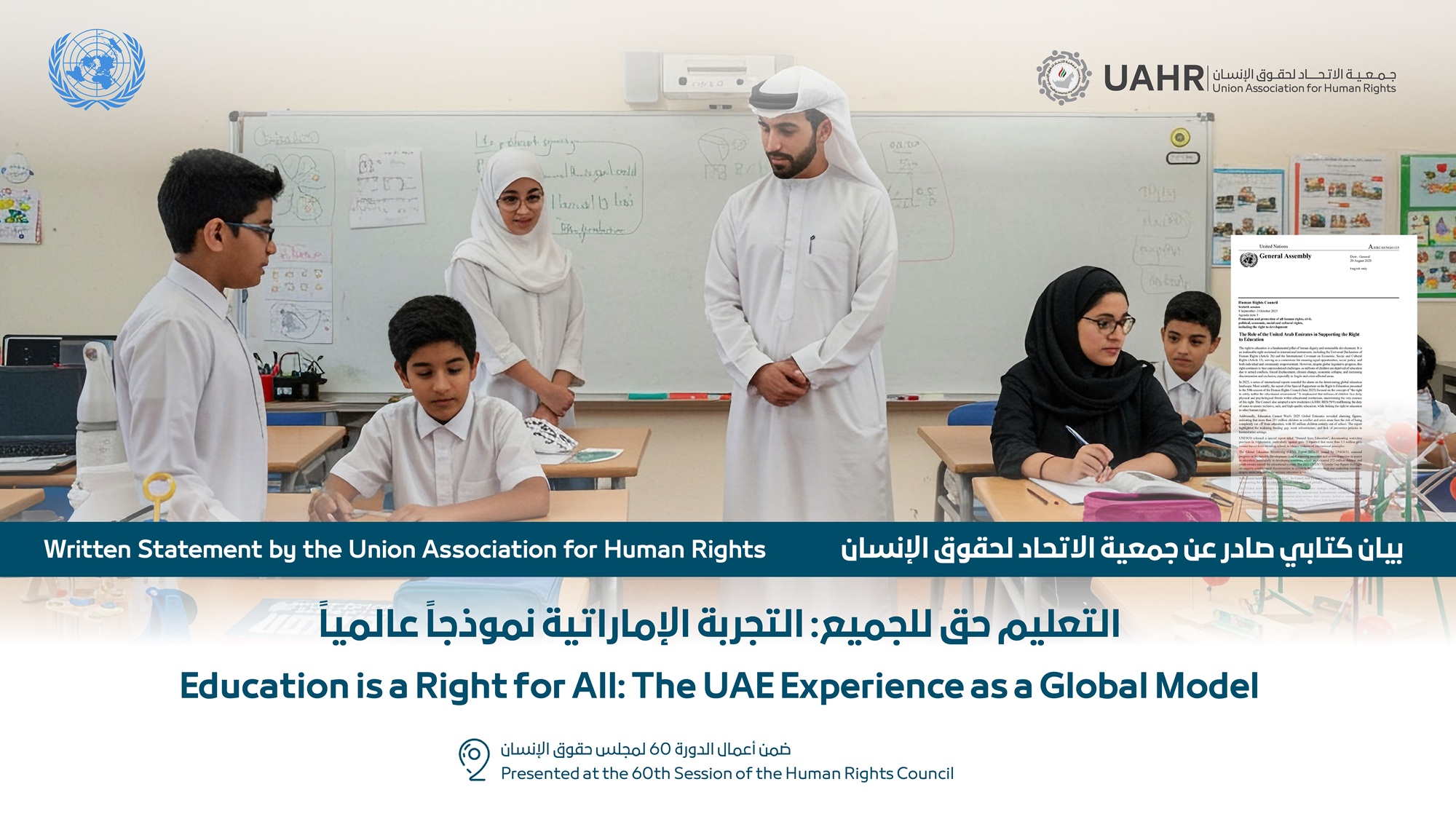03
Oct
2025
2025 | 60th session of the Human Rights | Human Rights Council | Written Statements
The Right to Education – The UAE’s Experience Locally and Globally

Summary of the Statement:
Submitted under Item 3 entitled “The Role of the UAE in Supporting the Right to Education.” It emphasizes education as a fundamental right linked to human dignity and sustainable development, while presenting global challenges and UAE initiatives.
Content of the Statement:
- Drew upon major international reports, including:
- Special Rapporteur’s Report on the Right to Education (2025) focused on the safety of the learning environment.
- Education Cannot Wait Report (2025): 234 million children at risk of being deprived of education, 85 million out of school.
- UNESCO’s Denied Education Report: over 1.5 million girls deprived of education in Afghanistan.
- GEM Report 2024/25: 272 million children and youth out of the global education system.
- Key UAE achievements:
- Free and compulsory education, and integration of AI into curricula from the age of four.
- Gender equality policy and inclusion of people of determination.
- Digital School initiative educating one million refugee and marginalized students.
- Funding of field schools in Yemen, Syria, Pakistan, Sudan, and Afghanistan.
- $200 million to the Global Partnership for Education since 2018.
- Partnerships with UNESCO, UNICEF, and ECW.
- Hosting international conferences such as the Global Education Improvement Summit (Sharjah 2025).
- Recommendations: Ensure education continuity during crises, integrate it into relief plans, and document UAE practices as replicable models.
Importance of the Statement:
- Reflects that education is a non-negotiable right even in crises.
- Highlights the UAE as a model combining national development with international solidarity.
- Links education to empowering girls and refugees, strengthening social justice.
- Reinforces the UAE’s image as a global partner in achieving SDG 4.

